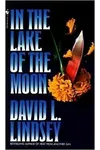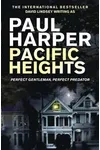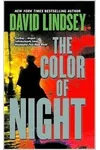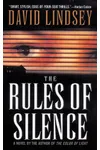Picture a Texan storyteller who spun chilling tales of crime and suspense, drawing readers into the shadowy corners of the human psyche—meet David L. Lindsey! Born in 1944, this master of mystery and thriller fiction has crafted over fourteen novels, with his gripping bestseller Mercy even hitting the big screen. With a career spanning three decades, Lindsey’s knack for weaving psychologically complex narratives has made him a cornerstone of the crime genre, all set against the vibrant backdrop of his beloved Texas.
From the sultry streets of Houston to the quiet hills of Austin, Lindsey’s stories pulse with intrigue, earning translations into multiple languages and a loyal fanbase. Ready to dive into his world? Let’s explore the life, works, and lasting impact of this literary gem.
The Making of David L. Lindsey
Born on November 6, 1944, in Kingsville, Texas, David L. Lindsey grew up in the Rio Grande Valley and near San Angelo, where the vast landscapes fueled his imagination. A graduate of North Texas State University with a degree in English literature, he moved to Austin in 1970. Initially, Lindsey worked as a book editor and ran his own publishing firm, Heidelberg Publishers, but writing fiction felt like a risky leap. In 1980, spurred by his wife Joyce’s encouragement, he took the plunge, choosing mystery for its market appeal and launching a prolific career.
David L. Lindsey’s Unforgettable Stories
Lindsey burst onto the scene in 1983 with two novels: Black Gold, Red Death, a high-stakes tale of a reporter entangled in a Mexican revolutionary plot, and A Cold Mind, introducing Houston homicide detective Stuart Haydon. Critics hailed A Cold Mind as a suspense classic, praising its taut pacing and psychological depth. Lindsey’s research with the Houston Homicide Division brought gritty authenticity to his Haydon series, which grew to five novels, culminating in the award-winning Body of Truth (1992).
In 1990, Lindsey’s Mercy redefined the serial killer genre, becoming an international bestseller and later an HBO film. This chilling tale of detective Carmen Palma navigating Houston’s dark underbelly showcased Lindsey’s ability to blend visceral crime scenes with profound character insights. Later works like Requiem for a Glass Heart (1996) explored international crime, while The Color of Night (1999) delved into espionage, proving his versatility. His meticulous research and evocative prose set him apart, creating stories that linger long after the final page.
Under the pseudonym Paul Harper, Lindsey also penned Pacific Heights (2011), the first in a serial novel about intelligence officer Marten Fane, reflecting his fascination with the shadowy world of privatized spying. Each novel, whether set in Texas or abroad, carries Lindsey’s signature: a blend of suspense, moral ambiguity, and richly drawn settings.
Why David L. Lindsey Matters
David L. Lindsey’s impact on crime fiction is undeniable. His pioneering exploration of serial killers in Mercy helped shape the genre, while his Haydon series elevated police procedurals with psychological nuance. His international settings broadened the scope of American thrillers, earning him accolades like Germany’s Bochumer Krimi Archiv award. Lindsey’s ability to humanize both heroes and villains resonates with readers, making his work timeless.
Beyond books, his stories have inspired film adaptations and teleplay projects, cementing his cultural footprint. For aspiring writers, Lindsey’s journey from editor to novelist is a testament to taking bold risks, proving that passion and persistence can redefine a genre.
- Born: November 6, 1944, Kingsville, Texas
- Key Works: A Cold Mind, Mercy, Body of Truth, The Color of Night
- Awards: Bochumer Krimi Archiv for Body of Truth (1992)
- Pseudonym: Paul Harper
Snag Mercy or A Cold Mind and dive into David L. Lindsey’s thrilling world of crime and suspense—your next page-turner awaits!













